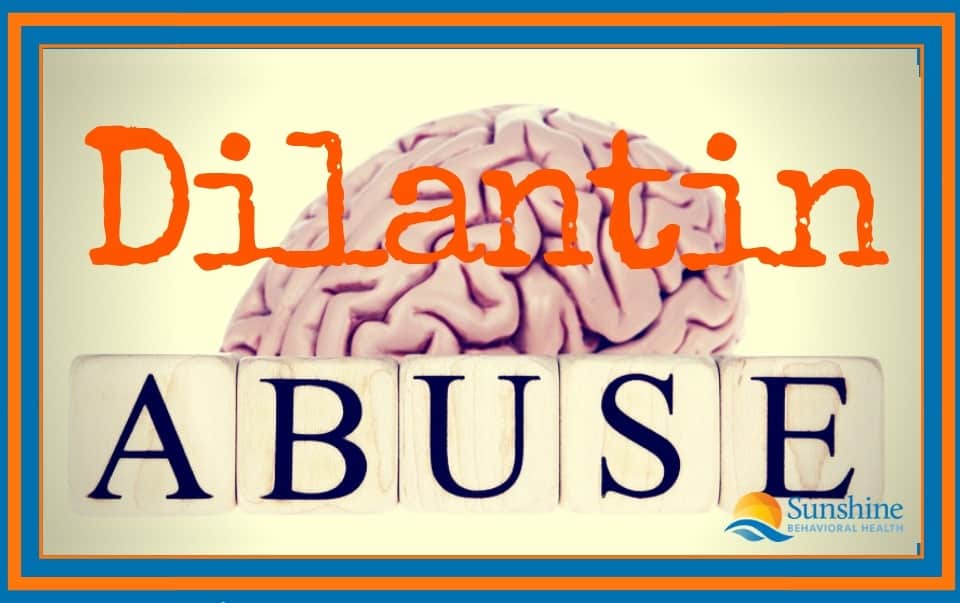
Phenytoin, sold under the more commonly known brand name Dilantin, is one of the first anticonvulsant drugs that was founded in the early 20th century. It’s primarily used to prevent seizures, particularly tonic-clonic seizures that impact the entire brain or partial seizures that impact sections of the brain. Dilantin uses also include treating neuropathic pain and irregular heartbeat. In some cases, Dilantin may also be used for the treatment of mood disorders. Although it is not approved to use Dilantin for this purpose, there have been reported cases of this mislabeled use. Dilantin abuse, what is it?
Dilantin is one of the most prescribed drugs across the globe that has an off-white color and is typically fragrance-free. In 2016, there were about 2.7 million prescriptions of the drug in the U.S. Dilantin is typically taken orally or injected through the vein (intravenous), typically when a seizure last more than five minutes. Dilantin is often used as a second line of defense for seizures, but still plays an integral part for the treatment of status epilepticus, seizures following a surgery or seizures that occur in a medical facility.
How Should You Take Dilantin?
Like all prescriptions, it’s important to use Dilantin as prescribed by your doctor. Do not change your Dilantin dosage unless told by your doctor. Here are common guidelines when it comes to taking Dilantin:
-
When taking an extended-release capsule, make sure to swallow it whole. Do not chew, break, crush or open the drug.
-
Dilantin Infatabs chewable is not for once-per-day dosage. Users must take them two or three times per day depending on your doctor’s instructions.
-
Shake the liquid version of Dilantin before you measure a dose. It’s important not to use a spoon. Use a dosing syringe or a medicine dose-measuring device.
-
If your prescription does not seem to keep your seizures under control, it’s important to tell your doctor immediately, but do not stop using Dilantin. Seizures can occur if you suddenly stop using the drug.
-
If you miss a dose, take it as soon as possible unless it’s almost time for your next dose. Skip the missed dose and continue with your regular cadence. Do not double the doses.
What Are The Side Effects Of Dilantin?
Like many other drugs, Dilantin can significantly alter and interfere with your body chemistry, resulting in unwanted side effects. Common side effects include:
-
Complications with your gums similar to gingivitis
-
Decreased coordination
-
Dizziness
-
Rapid hair growth
-
Loss of appetite, nausea or stomach cramps
-
Mild difficulty with paying attention
More extreme side effects include:
-
Atrophy of the cerebellum in the brain
-
Birth defects if taken during pregnancy
-
Bone marrow problems
-
Hypotension
-
Insomnia
-
Liver damage
-
Mild tremors
-
Neuropathy
-
Potential thoughts of suicide
-
The weakening of the bones or development of osteoporosis
It’s also worth noting that a small percentage of people may develop an allergy to Dilantin. In the case of an allergic reaction, contact your physician right away.
Drug Interactions With Dilantin
A drug interaction occurs when you take Dilantin along with other drugs or medications. These phenytoin interactions could either heighten the effects of both drugs or the opposite and reduce the effectiveness of each.
There are more than 1,200 drugs known to interact with Dilantin. Among this list, 200 of these drugs have major repercussions when mixed with Dilantin along with 1,000 other substances that produce moderate effects.
Drugs and treatments related to the conditions below are known to interact with Dilantin:
-
Megaloblastic anemia
-
Hyperglycemia
-
Liver disease
-
Cardiotoxicity
-
Renal dysfunction
-
Blood dyscrasias
-
Osteomalacia
-
Thyroid function tests
Dilantin Abuse And Overdose
Like many prescription drugs, Dilantin abuse can occur for both patients and non-patients. In most cases of abuse, the user is trying to achieve a Dilantin high. Often at times, users abuse Dilantin in conjunction with other substances, most commonly alcohol. Ironically, the drug label for Dilantin clearly indicates that the drug should not be taken with alcohol because it will decrease the effectiveness of the drug and increase unwanted side effects.
However, Dilantin is not a major drug for abuse when looking at the bigger picture. Using Dilantin does not produce significant euphoria even though it may be used to regulate pain. Despite needing a prescription, the drug is not labeled as a controlled substance by the United States Drug Enforcement Administration. Dilantin should only be used under the supervision of your doctor due to the harmful side effects.
Although Dilantin is not a major drug of abuse, Dilantin toxicity can occur and can lead to death. Overdose symptoms may include:
-
Fainting
-
Feeling light-headed
-
Loss of balance
-
Muscle stiffness or weakness
-
Nausea
-
Slow or shallow breathing
-
Slurred speech
-
Tremor
-
Twitching eye movements
-
Vomiting
Dilantin toxicity is rarely fatal, but can cause neurologic after effects such as nystagmus, ataxia and a coma. If you or someone experiences overdosing and has serious symptoms such as passing out or trouble to breathe, immediately call 911. In other cases, call a poison control center right away. People in the U.S. can call 1-800-222-1222 to reach their local poison control center. Questions or concerns? If so, reach out to Sunshine Behavioral Health today.
A Message From Our CEO
Medical disclaimer:
Sunshine Behavioral Health strives to help people who are facing substance abuse, addiction, mental health disorders, or a combination of these conditions. It does this by providing compassionate care and evidence-based content that addresses health, treatment, and recovery.
Licensed medical professionals review material we publish on our site. The material is not a substitute for qualified medical diagnoses, treatment, or advice. It should not be used to replace the suggestions of your personal physician or other health care professionals.





